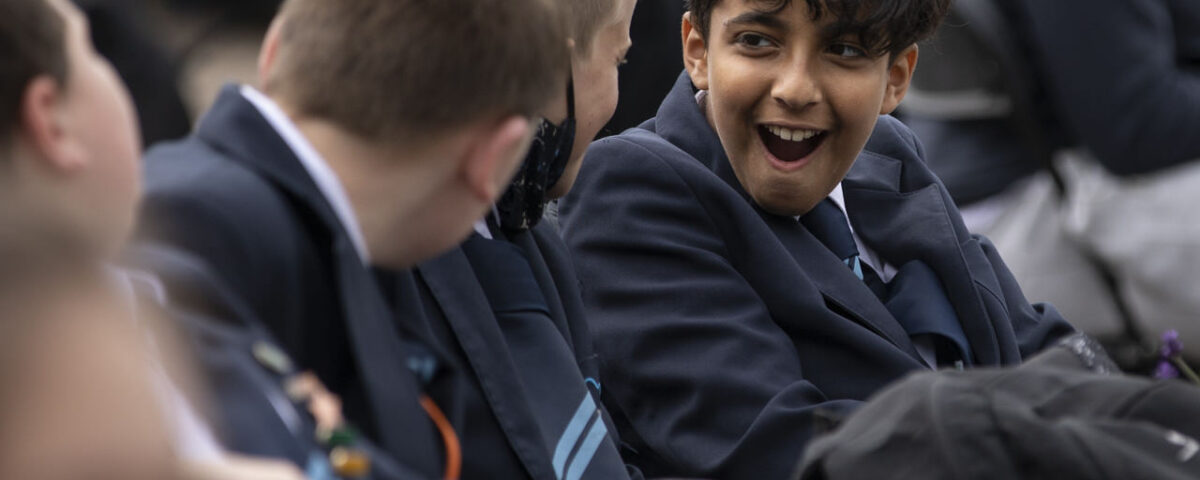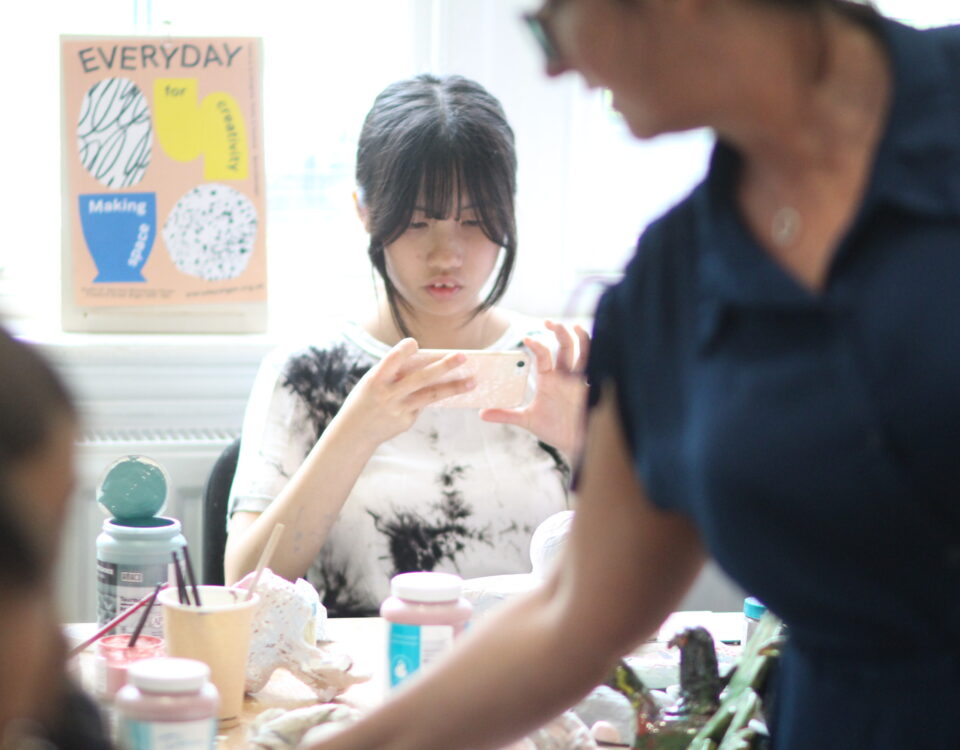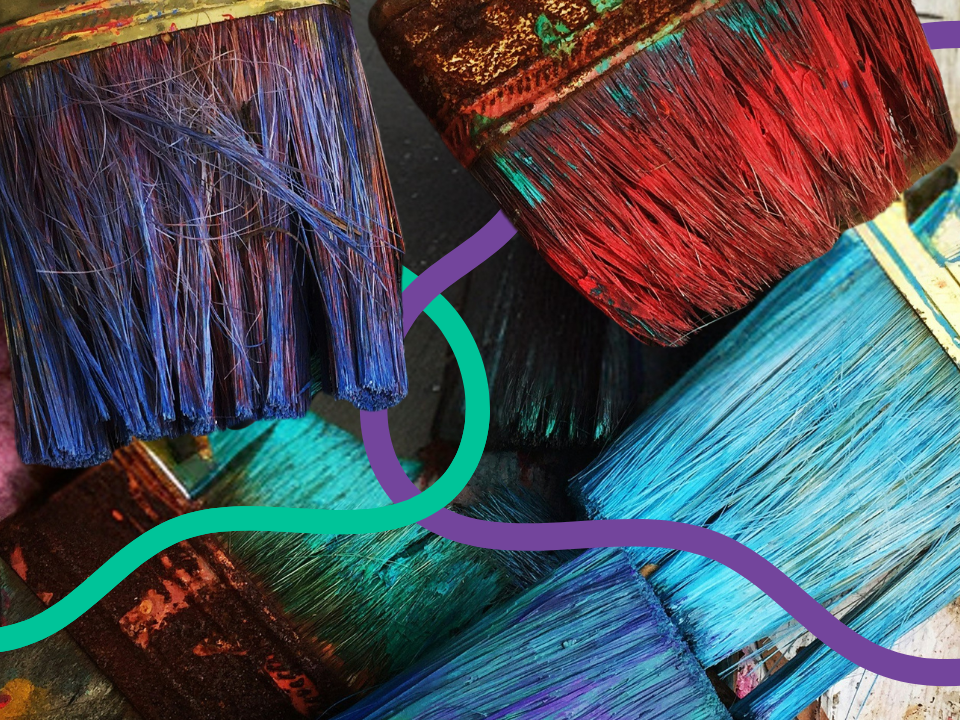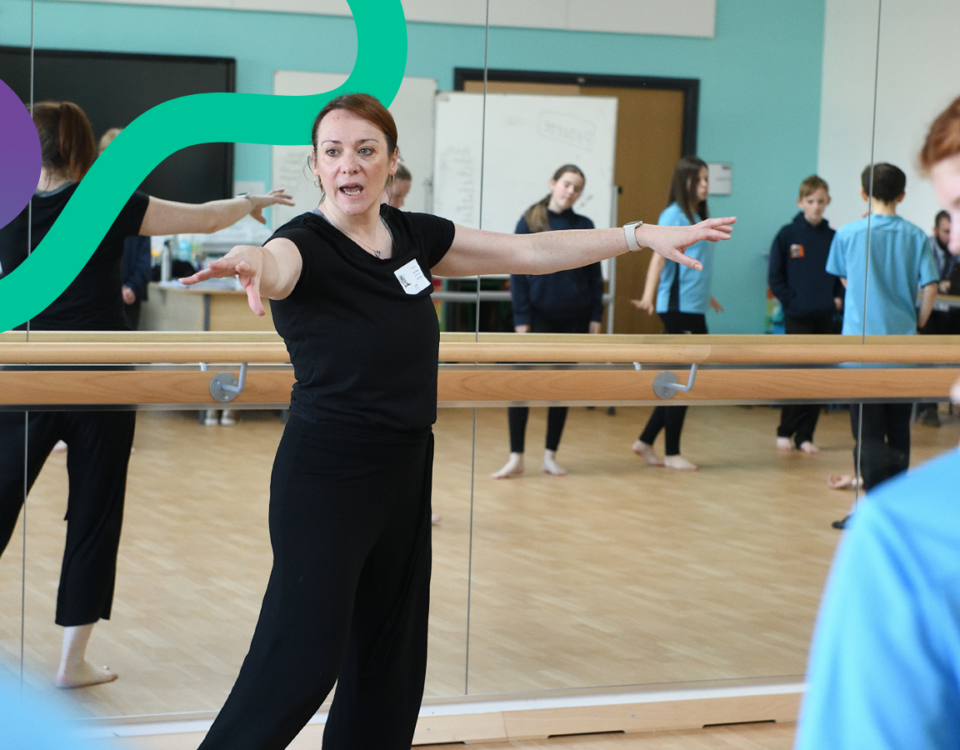
Biscuits are your Superpower
March 25, 2022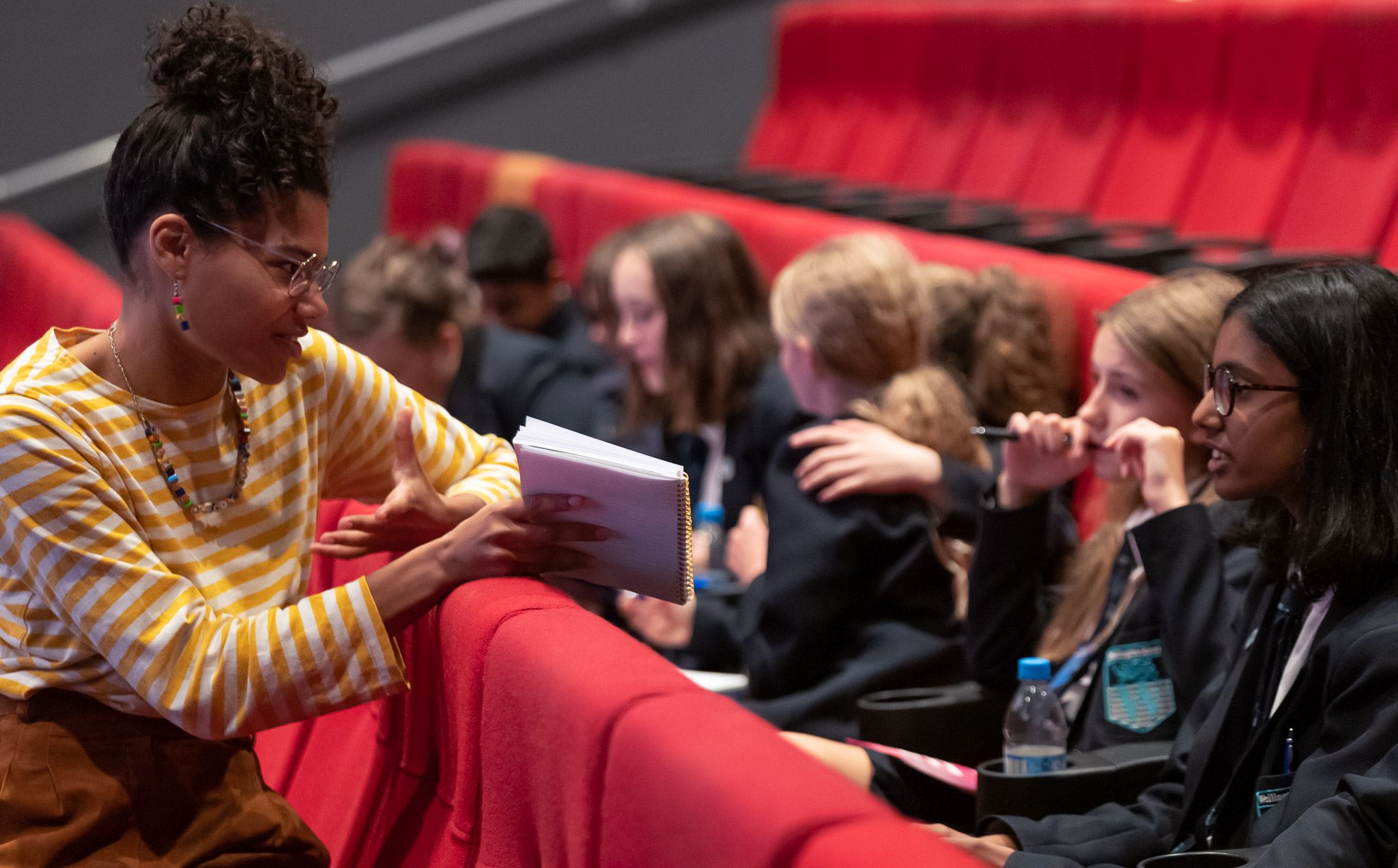
Generations for Change – Digital Producer & Project Manager Brief
May 4, 2022The importance of co-creation in engaging arts organisations with schools and children and young people.
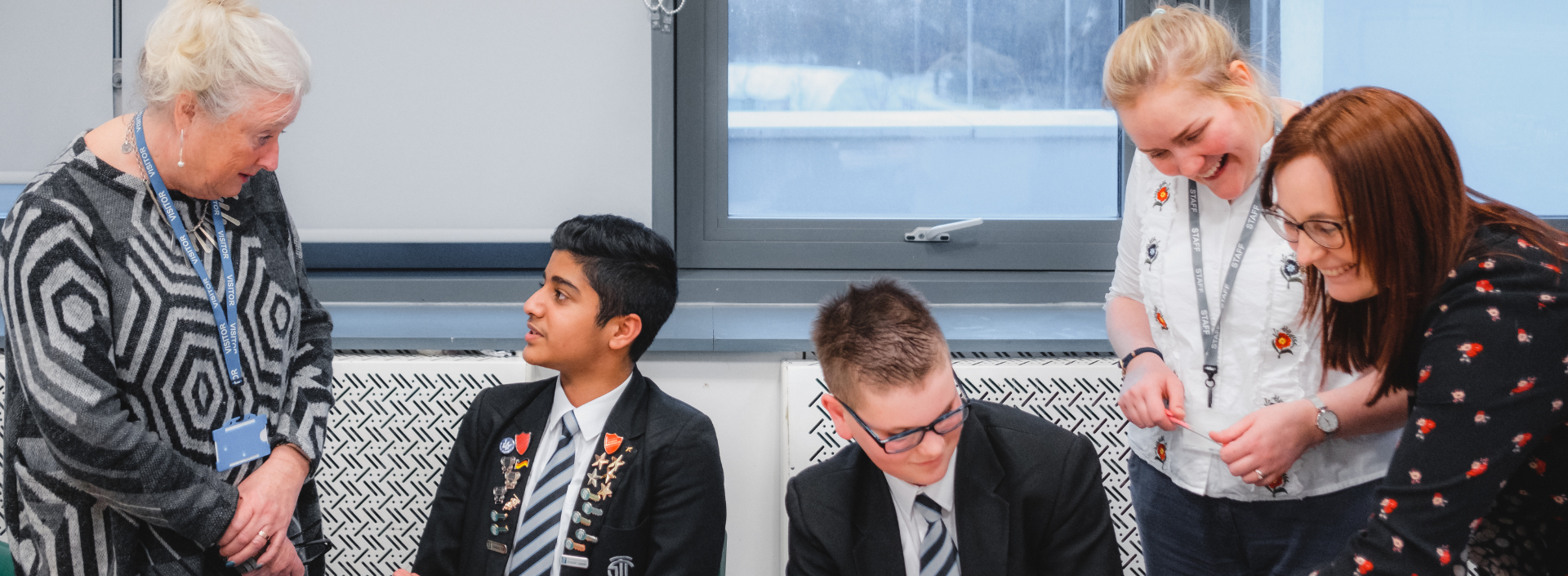
Rosannah Jones, Engagement Coordinator at Manchester International Festival (MIF) stresses to us the importance of co-creation.
She's been a participant of Curious Minds' CASE Fellowship programme and therefore developing as a creative sector schools specialist.
Here, Rosannah shares some insights on how the CASE Fellowship has helped her understand the power of co-creation.
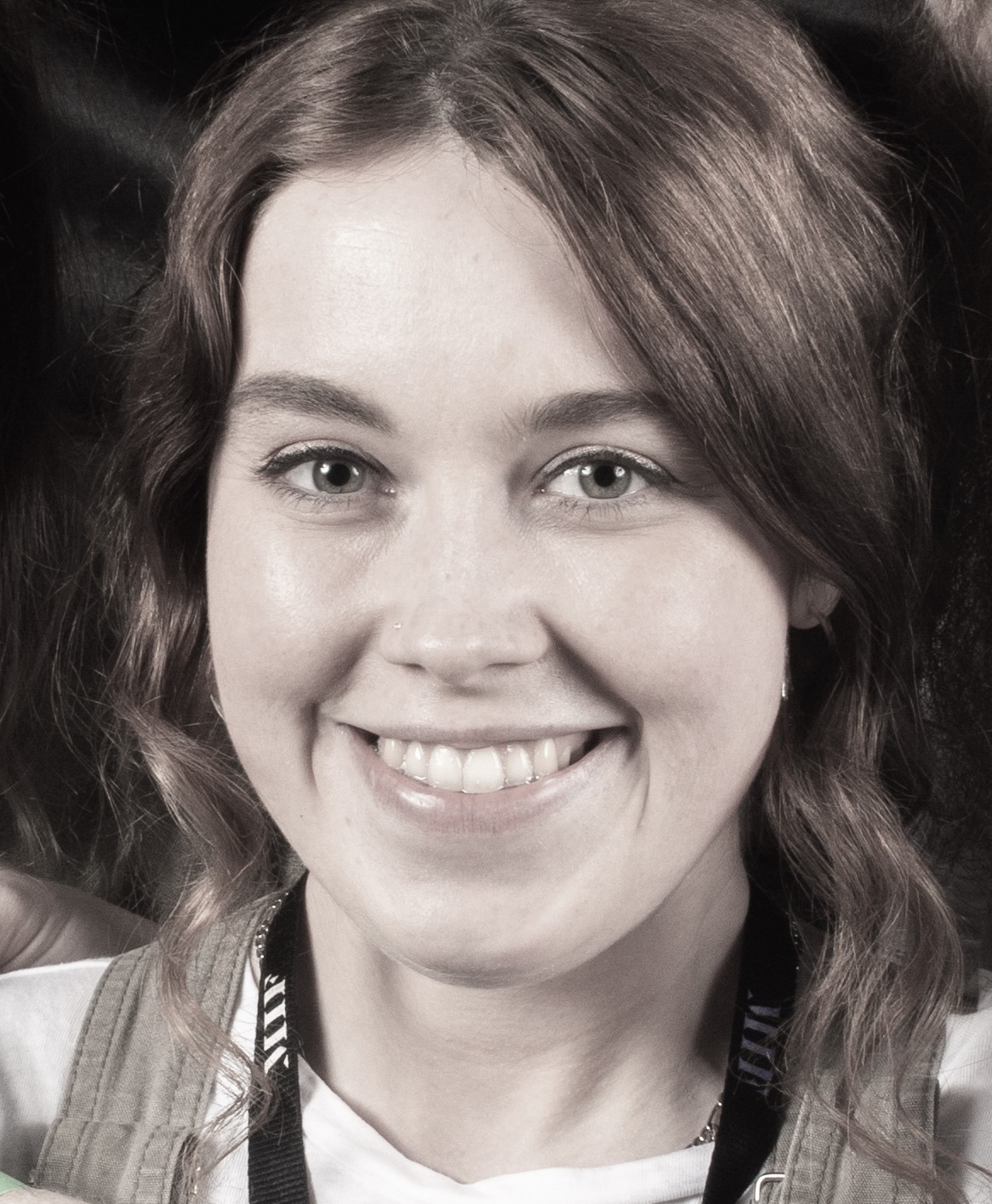
Rosannah Jones
Engagement Coordinator, MIF
In November 2019, when I started the CASE (Culture and Arts Schools Experts) Fellowship, I had recently completed my first year working in the Creative Engagement team at Manchester International Festival (MIF). The CASE Fellowship presented an opportunity to build on my existing knowledge and skills working with schools, with the aim to become a better advocate for cultural education in my organisation. Earlier that year, I delivered my first schools engagement programme as part of the MIF19 Festival - Animals of Manchester. This was an ambitious project in collaboration with international artists from the Theatre of Research and Live Art Development Agency, which invited primary school children to co-create a series of events celebrating animals at the Festival’s final weekend in Whitworth Park. This was my first experience delivering a large-scale schools engagement programme and my first time working on a co-created project.
What is co-creation?
Whilst co-creation has become an arts and cultural sector buzzword, it ultimately represents an ambition to collectively problem solve. I like to use this definition to guide my own interpretation of co-creation…“Co-creation is a co-operative process in which people with diverse experiences, skills and knowledge come together and work in non-hierarchical ways to address a common issue, and which enables people and communities to be actively involved in shaping the things which impact their lives. It shifts power, resource and ownership towards the people the work is intended to benefit, as opposed to the traditional ‘top down’ approach. It encourages every individual to activate their creative potential and realise their own ability to make change.”
Since 2019, working on co-created projects has become a big part of my role as Engagement Coordinator at MIF. Thanks to the CASE programme, I had the chance to step away from my day-to-day priorities at work to reimagine what the future of arts engagement for young people could look like.
From the first CASE residential, the CASE Fellows had the opportunity to:
The Fellowship supported each of us individually to have greater agency in our own personal development, action plans and goals. The benefits of this included feeling supported by a structured programme, having access to a wealth of resources and the privilege of dedicated time to focus on our own research and learning. Throughout this process, I was reminded that agency and collaboration are two of the most important pillars of creativity and if these values are embedded and upheld on projects, then a person’s engagement and experience has the potential to be much richer and more impactful. I strongly believe that the more arts organisations can facilitate school participation in co-created projects, the more empowered young people will feel to articulate their voices, build confidence, and express themselves. The long-term ambition being that schools recognise the value of co-creation in supporting the development and wellbeing of young people and start to adopt similar models across a range of subjects and activities.
There have been lots of challenges in facilitating and supporting co-created projects over the ever-changing course of Covid-19. In early spring 2021, I supported the ‘Your Manifesto’ pilot programme, led by Naomi Lord – MIF SLiCE (Specialist Leaders in Cultural Education) Fellow. This was a co-created project which invited young people from different schools across Bolton to take part in a series of virtual workshops, which responded to their emerging ideas around how to shape arts and cultural activities in their area. The young people who took part in this project were then invited to the MIF21 Festival to meet in person and experience the various local and international elements of a large-scale biennial festival.
This pilot programme was a useful case study in how to create an arts engagement project, led and directed by the interests of young people. The flexibility of the workshop structure enabled sessions to constantly be adapted to the needs and preferences of the group. Models like this, help to level out the hierarchies and power imbalances that typically exist between institutions such as arts organisations, schools, and the young people the programmes are intended to benefit.
This pilot programme was a useful case study in how to create an arts engagement project, led and directed by the interests of young people. The flexibility of the workshop structure enabled sessions to constantly be adapted to the needs and preferences of the group. Models like this, help to level out the hierarchies and power imbalances that typically exist between institutions such as arts organisations, schools, and the young people the programmes are intended to benefit.
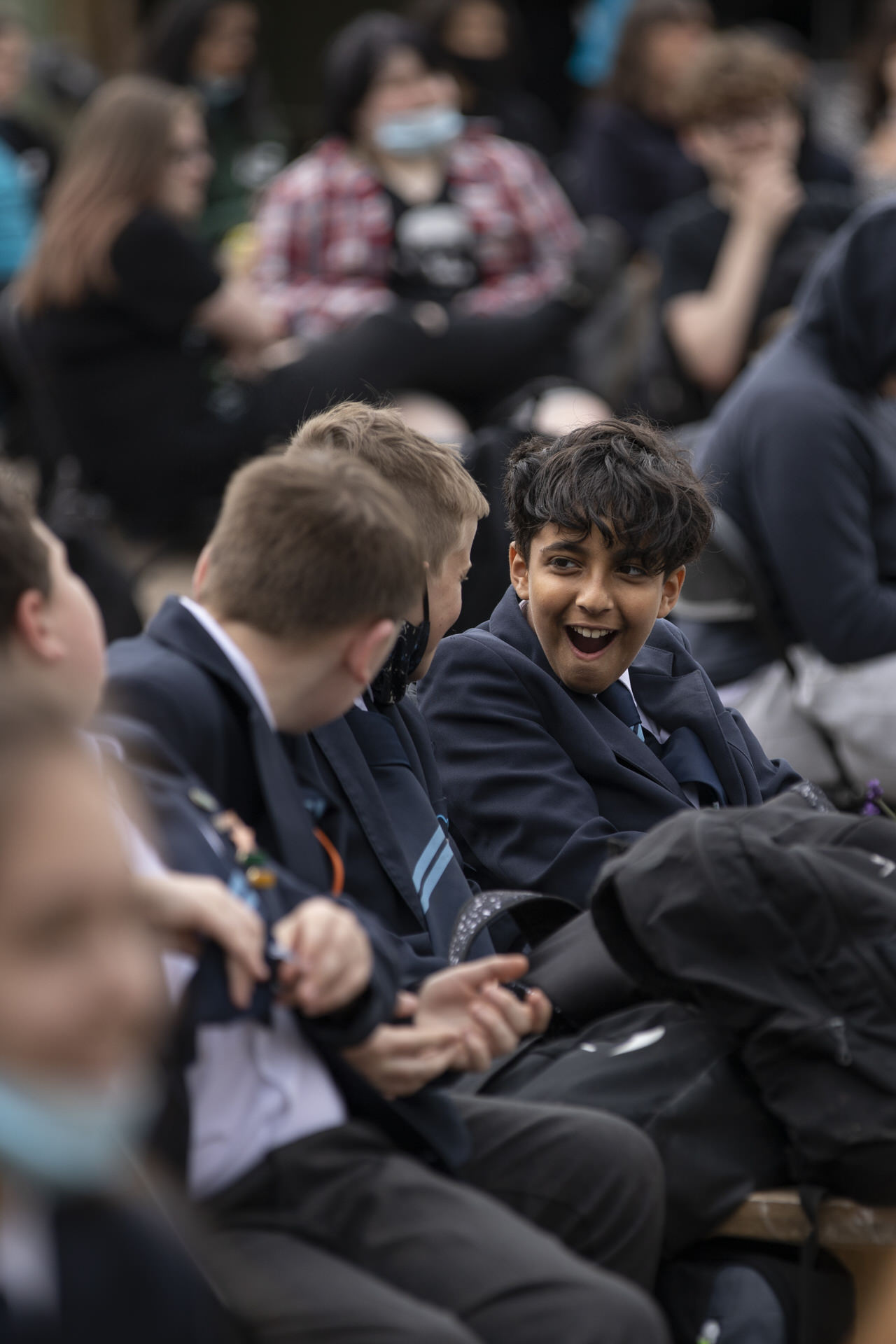
Invent tomorrow, together.
Over the next year, I will continue to work on a co-created programme for the opening of MIF’s new venue The Factory. This is an exciting project that will involve multi-arts performances, participatory work, education programmes, as well as talent development and skills and training opportunities. The Factory’s creative vision is to ‘invent tomorrow, together’ and young people and schools play a fundamental role in what this looks like, therefore, it is essential that young people are collaborators in realising this vision.
Despite the delays and challenges caused by Covid-19, the extension of the CASE programme has been invaluable in many ways. The main one being the amount of time I have had to reflect on my own learning and professional hopes for the future.
The CASE programme has inspired me to constantly review and question the relevance and purpose of arts engagement offers for schools, by examining who sets the strategy, how decisions are made, where budget and resources are allocated and how schools and arts organisations can collaborate to bring together different - but equally valuable - expertise. I have gained a better knowledge and understanding of different models for increasing young people’s agency and the CASE programme has reminded me that the future of cultural education will be much brighter if we actively listen, engage and co-create with young people and not for them.
The CASE programme has inspired me to constantly review and question the relevance and purpose of arts engagement offers for schools, by examining who sets the strategy, how decisions are made, where budget and resources are allocated and how schools and arts organisations can collaborate to bring together different - but equally valuable - expertise. I have gained a better knowledge and understanding of different models for increasing young people’s agency and the CASE programme has reminded me that the future of cultural education will be much brighter if we actively listen, engage and co-create with young people and not for them.

